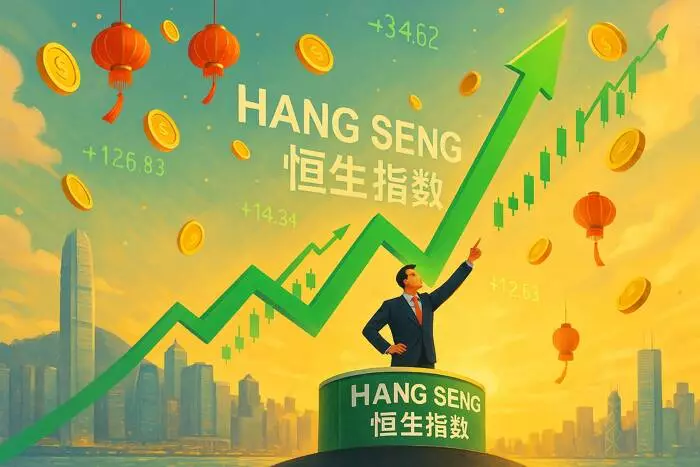The fluctuations in global financial markets are a testament to the underlying economic currents shaping investor sentiment. In a week where US markets showed signs of struggle, the Hang Seng Index stood resilient, marking a commendable rise of 1.61% by May 9. This remarkable surge underscores the evolving narrative in the Asian markets, particularly driven by favorable stimuli from the Chinese government and a slight easing of US-China tensions. These factors have coalesced to foster an environment where Hong Kong-listed stocks are once again garnering interest from investors.
This rising trend is not just a mere blip; rather, it represents a potential shift in investment strategies toward Asian equities. The robust growth in electric vehicle (EV)-related stocks serves as a bellwether of this trend. For instance, companies like Geely Automobile Holdings saw their stocks jump by 10.07%. Such performance suggests a growing confidence in the EV market, possibly fueled by both local and international policy support aimed at sustainability and reducing carbon emissions.
Sector Dynamics: Divergent Trends Within the Hang Seng
While the Hang Seng Index as a whole enjoyed positive momentum, this was not without its caveats. The juxtaposition between the thriving EV sector and the struggling housing and tech indexes paints a complex picture of market sentiment. The Hang Seng TECH Index faltered, dropping by 1.22%, as major players like Baidu and Alibaba experienced declines in their stock prices—3.32% and 1.31%, respectively. Such contradictions within the index raise questions about sustainability; can a few emerging sectors compensate for broader declines in traditional heavyweights?
Investors are not just passive observers; they are now engaging with a landscape that demands agility and foresight. The real estate and tech sectors, traditionally seen as bedrocks of economic strength in Hong Kong, require urgent reassessment. The significant 3.73% drop in the Hang Seng Mainland Properties Index reflects deep-seated concerns regarding the housing market’s trajectory. This outcome further necessitates a nuanced understanding of geographic and sectoral dynamics.
Global Signals: What the Markets are Telling Us
While the Hang Seng made notable gains, a broader global context remains critical to interpret these movements accurately. Other markets in Asia also exhibited varied performances. For instance, the Nikkei 225 showcased a formidable rise of 3.61%, buoyed by both trade optimism and a weakened Japanese Yen. Here, the currency dynamic illustrates a powerful tool that Japanese exporters can leverage to fortify their competitive edge.
Contrastingly, the ASX 200 experienced a minor decline, snapping its three-week winning streak, highlighting the fragility of market sentiments in the face of earnings disappointments from key players like ANZ and Westpac. These discrepancies across regional indexes underscore the complexity of a global market marred by uncertainty but also full of opportunities, reminding investors of the need to remain vigilant and agile.
External Factors: The Churning Waters of Trade and Policy
Market dynamics are driven not only by internal metrics but also significantly influenced by external factors such as trade policies and economic indicators. The recent uptick in gold prices, with a rise of 2.88%, can be perceived as a safe-haven response amidst global uncertainty, where investors often turn to traditional assets when confidence in equities falters. Silver linings come in the form of improvements in trade conversations, suggesting a thaw in previously chilly US-China relations.
As we stand on the cusp of critical economic data releases, including the US CPI report and Japan’s GDP, the market’s direction remains precarious yet promising. The forthcoming week will be pivotal in shaping investor expectations and risk assessments, particularly concerning inflationary pressures and consumer spending trends.
In an era of volatility, strategizing with an eye on evolving market narratives is essential. The resilience of the Hang Seng Index amidst mixed global signals reinforces the significance of understanding not just local but also geopolitical factors. Investors must remain agile, ready to adapt their strategies as they navigate this intricate landscape filled with both risks and rewards.

